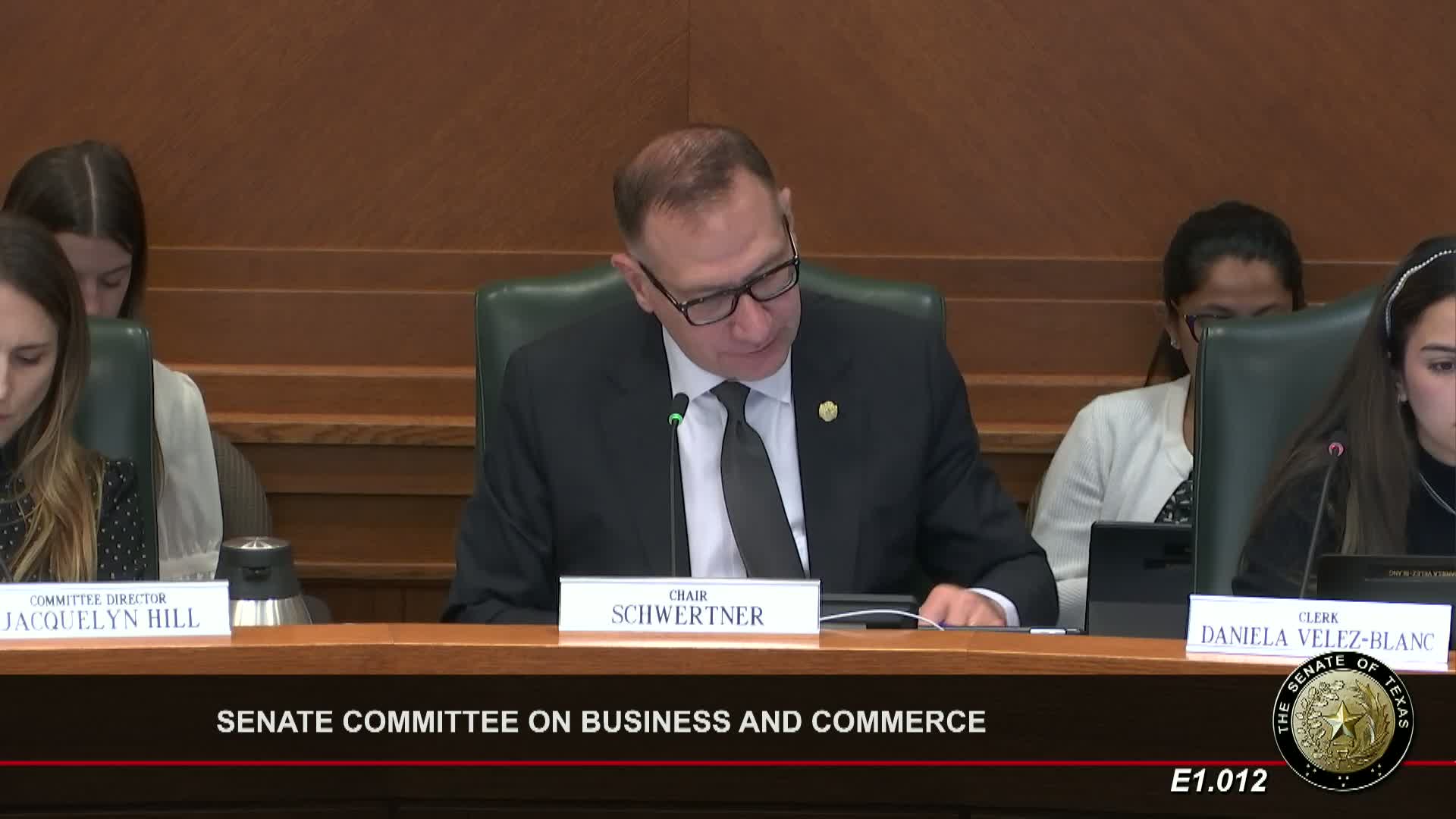Article not found
This article is no longer available. But don't worry—we've gathered other articles that discuss the same topic.
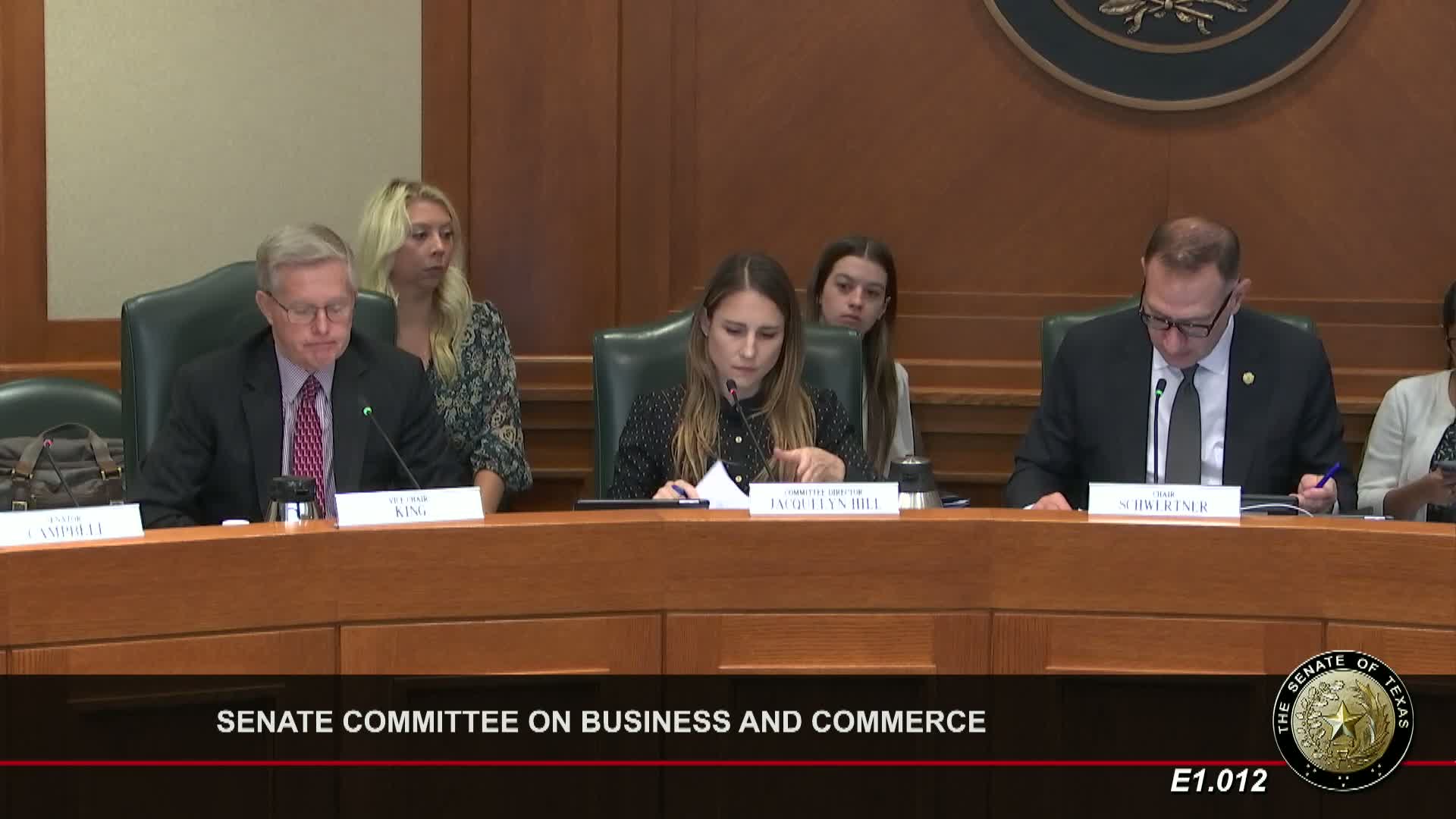
Senate committee hears long‑range transmission planning bill aimed at ERCOT congestion costs
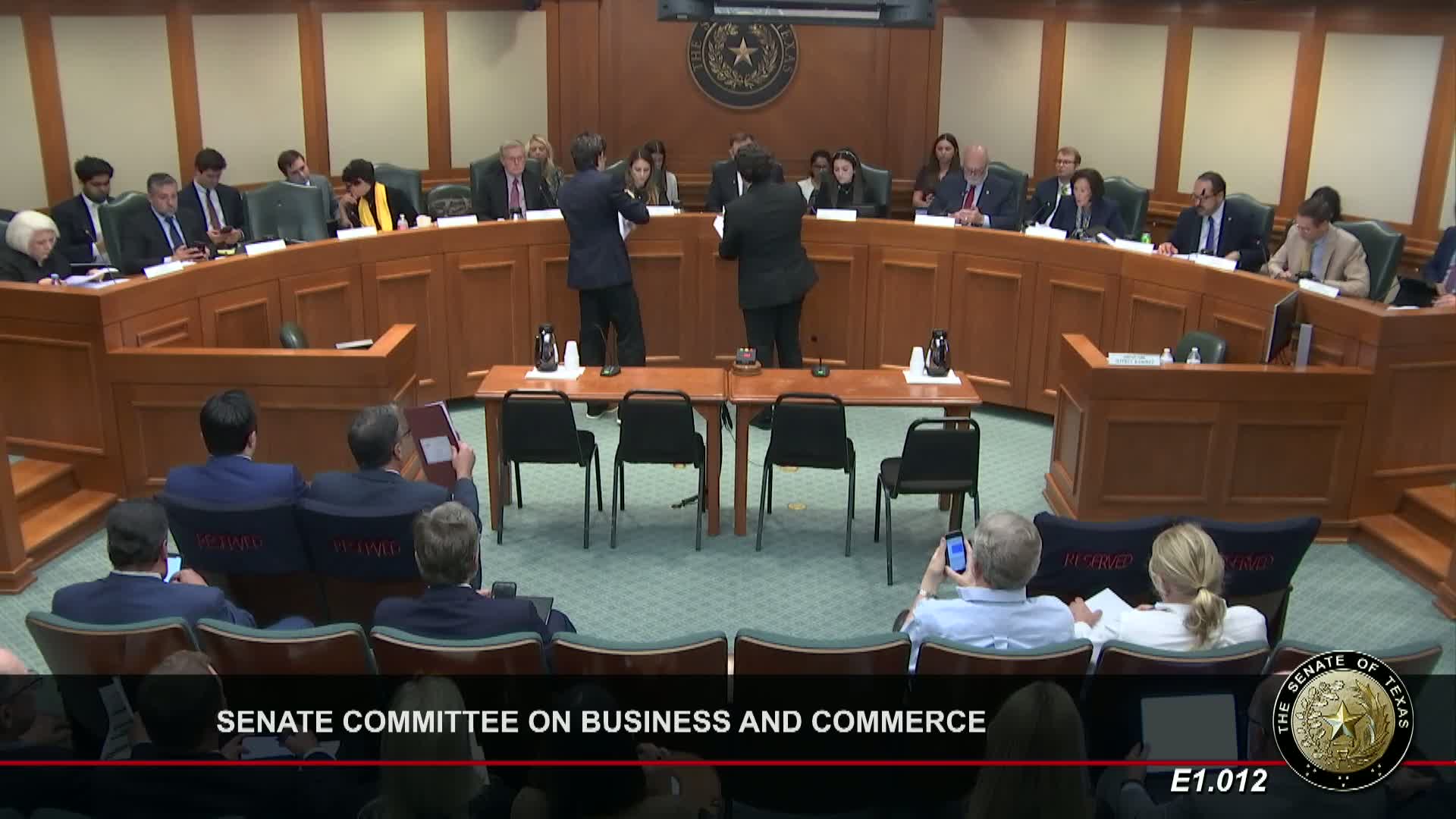
Committee adopts substitute revising ESF financing language after Comptroller input on TWIA provisions
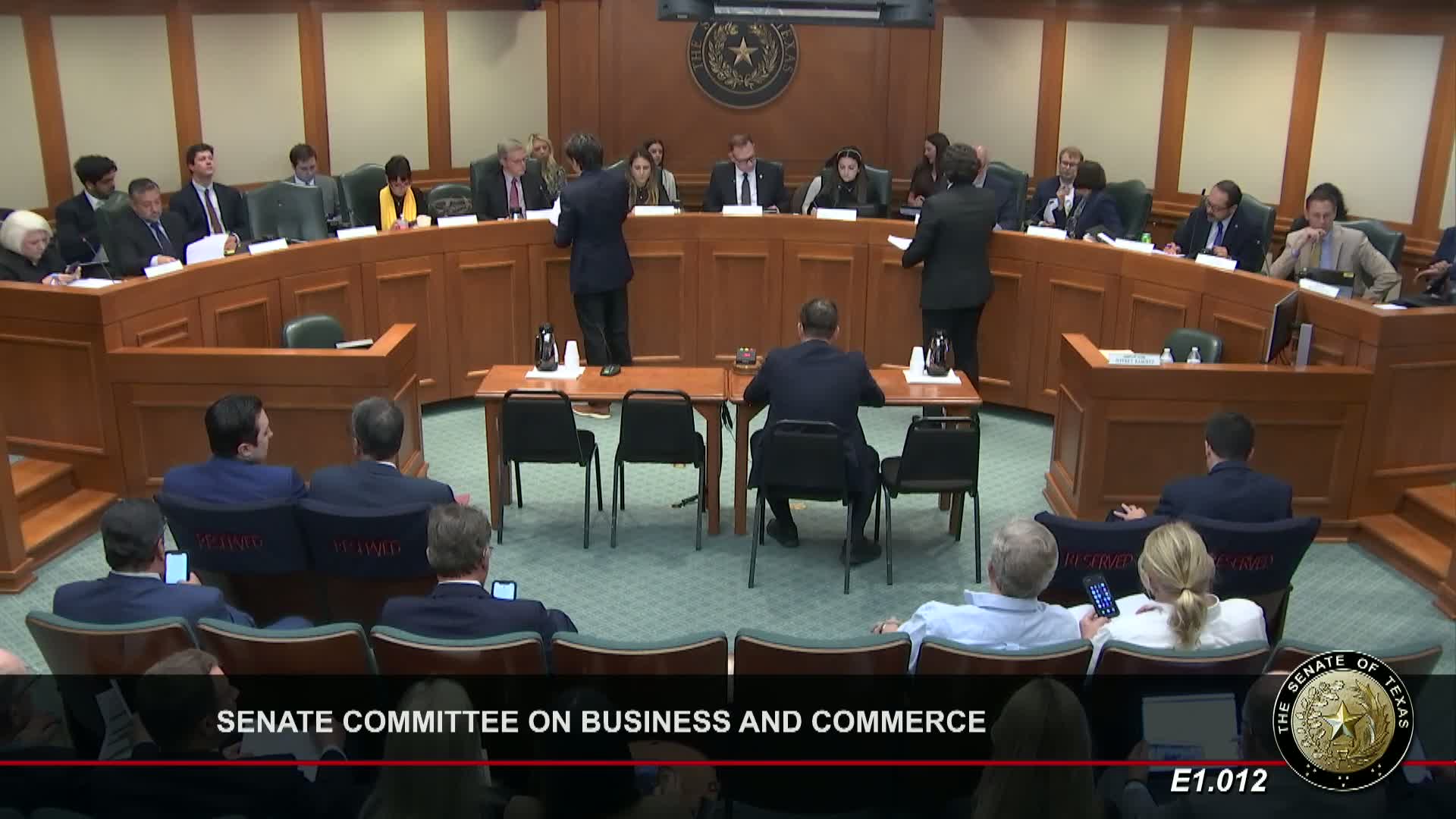
Committee adopts committee substitute to clarify rental car policy language on cooperation requirement
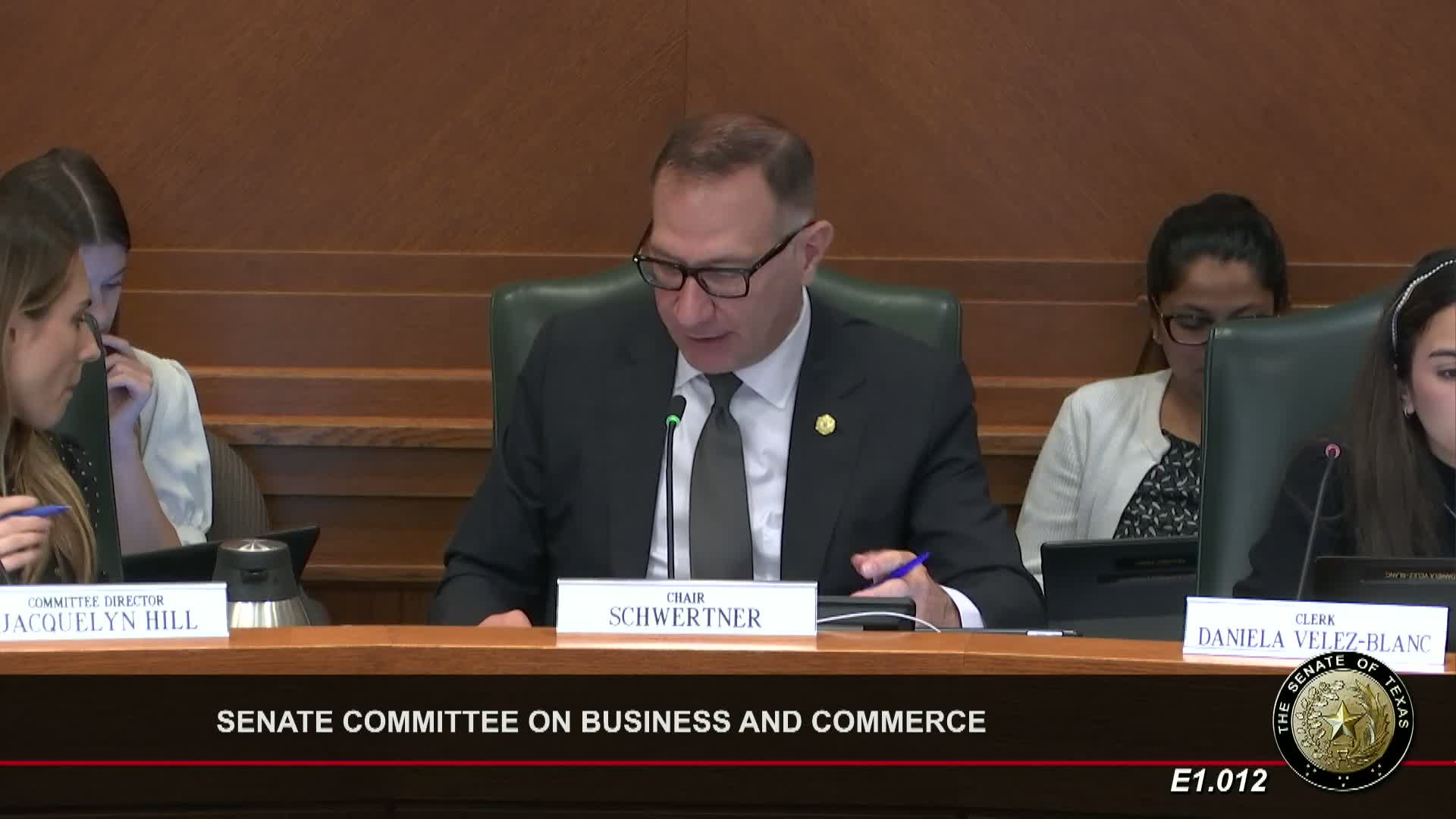
Bill to join interstate cosmetology compact wins industry support, cites benefits for military spouses
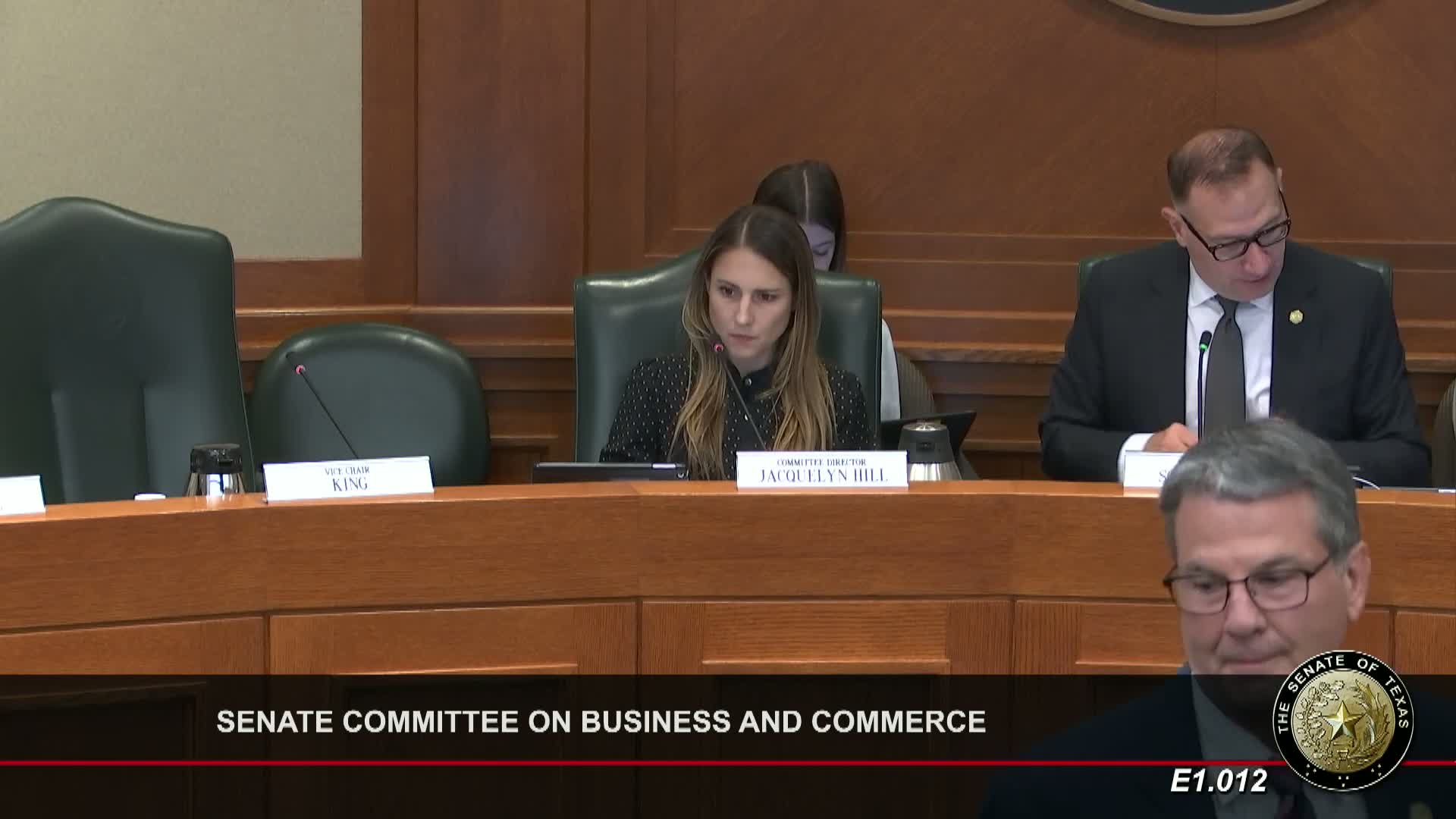
Panel backs resolution urging Congress to preserve nuclear tax credits cited as key to plant restarts and new builds
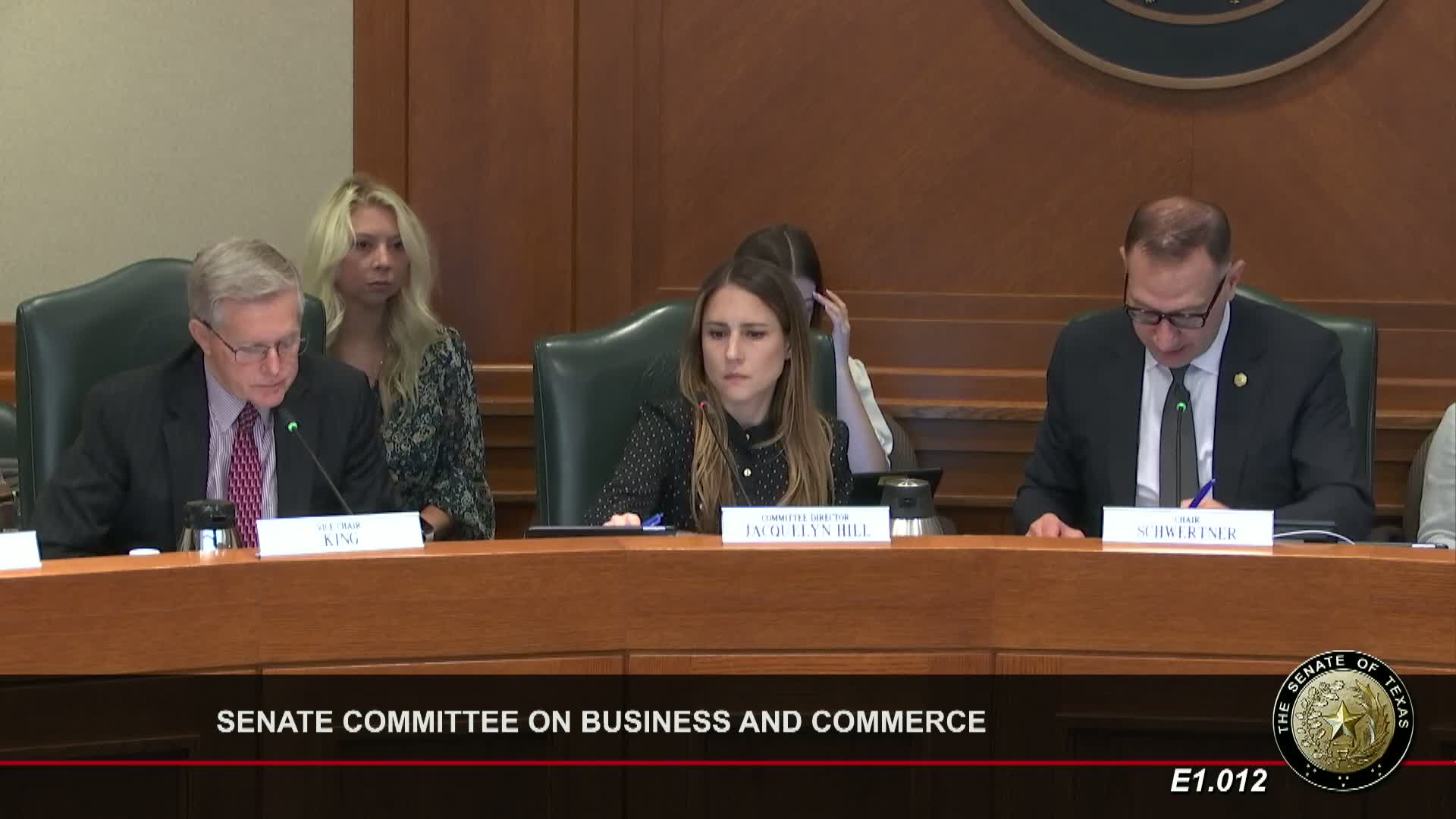
Committee hears bill to require written telework agreements for state agencies amid return‑to‑office mandate
